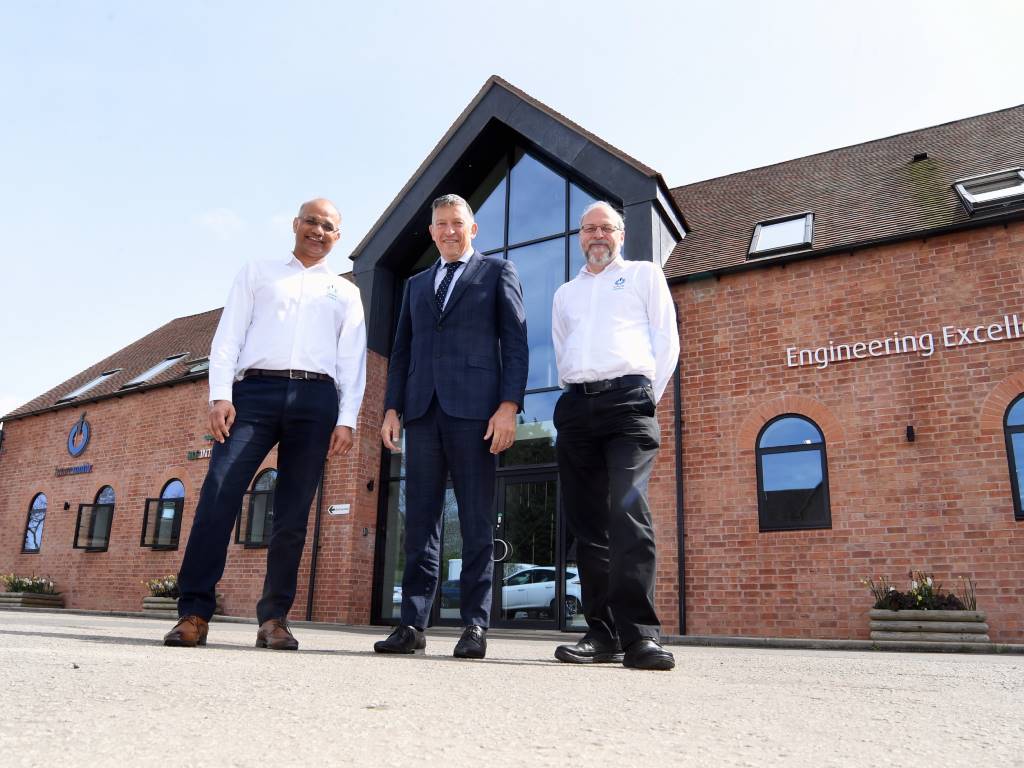Subcontracting: the Holy Grail

Mark Bevan has built his successful machining business based on the three factors that define successful subcontracting: the ability to deliver quality parts at the right price and always on time.
And for his Dorset-based MJB Precision Engineering operation, now in its 25th year, Mr Bevan says that attaining – and retaining – that holy grail of subcontract supply has meant focusing on customer needs by establishing close partnerships, investing in specific technology and imparting a consistent, authoritative and expert level of applications engineering.
It’s a philosophy that has not only gained the 12-employee company accreditation to the AS 9100 and ISO 9001 industry and quality standards, but it has also led to many customer accolades through the provision of batches that can vary from 25-off to several thousands of components from 3mm to 300mm diameter and up to 250mm long.
“Achieving superlative levels of component quality, price and delivery, and working with consignment stock and just-in-time supply, are almost taken for granted nowadays,” says Mr Bevan, a time-served engineer. “So, any subcontract operation that wants to stand out and continually win new business must bring other USPs to the table.
“We align ourselves with customers and work very closely with them. We never say ‘no’ – in fact on urgent jobs we have no hesitation in working all night, if need be to meet demands, often machining workpieces in materials that others will avoid – including hardened steels.
“Above all, we also invest in the appropriate, high-class machinery and supporting equipment to suit specific components and contracts. That said, each machine must also be versatile enough to meet any future new work from perhaps different industry sectors.”
It’s a philosophy that today sees the MJB shopfloor adorned with a wide range of high quality machinery for both shaft-type and prismatic workpieces, and much of the turning/turn-mill capacity is accompanied by bar feeds or gantry loaders, including a pair of Takisawa Japan turning centres both with gantry loaders.

“There’s no denying that on occasions in the past we have invested in what are best described as ‘quick fix’ machines; machines of relatively lower cost. But these have always eventually let me down, primarily in terms of consistency of output which is totally against the principles of successful subcontracting.”
He continues: “We need to know that every component we produce is going to be correct; there’s no room for process unreliability when working high-value materials where not only is scrap very expensive but also material supply is not always immediate, so any hiccup in machining processes could lead to missed deliveries.
“And with automated systems for bar and billet feed, for unmanned and overnight working, it is imperative that the machines always hold their consistency, day in and day out. There’s no doubt that, in terms of machine purchase, you get what you pay for.”
The two Takisawa Japan machines, supplied by TW Ward CNC Machinery (Ward CNC), are a case in point.
“We’ve had experience of Takisawa Japan machines stretching back 15 years or more and our team are well-versed in their Fanuc CNC systems,” adds Mr Bevan. “So, when we needed to expand our turning centre capacity in response to new contract demands, we had no hesitation in investing in the brand by contacting Ward CNC.
“From experience, we know that the machines are well-built and very reliable, and it was these factors combined with Ward CNC’s expert levels of service and back-up that made machine selection an easy choice.”
Also of importance, he says, was the fact that Ward CNC held the machines in stock (machines valued at more than £10 million are currently available from Ward CNC’s Sheffield and Redditch showrooms) and subcontractors, especially, appreciate the ready availability of machines to meet upsurges in order books.

Mr Bevan continues: “The machines were initially purchased to satisfy specific machining tasks, including in one case, the production of a 52100 aircraft power component that is produced in batches of 50 to 100-off. But such is their flexibility in terms of spindle operation and capacity – the newer machine, the TCC1100GA, can accommodate workpiece diameters and lengths of 220 mm and 171 mm, respectively – they are ideal for additional new work.”
The TT2000G has twin 8 inch chucks driven at 3,200rpm; the TCC1100GA has a 6 inch chuck and spindle speeds up to 5,000rpm.
“Both machines have billet loaders that operate at 120m/minute transfer rates, which was another major factor in their purchase,” Mr Bevan affirms. “The loaders enable us to process work much more efficiently than having to handle such workpieces for a chucking lathe.
“And our machinists find that the Fanuc control makes it easy to use the machine without the gantry loader if need be, perhaps running one spindle manually and the other spindle in conjunction with gantry-loaded parts by simply entering the Fanuc loader screen and without altering machining programs.
“The Takisawas are good, solid machines that are thermally very stable and therefore they consistently hold close tolerances and offer high levels of reliability. They are exactly what subcontract suppliers like ourselves need to ensure we continually meet customer demands in the most cost-effective way.”
TW Ward CNC Machinery www.wardcnc.com
MJB Precision Engineering www.mjbprecision.com













